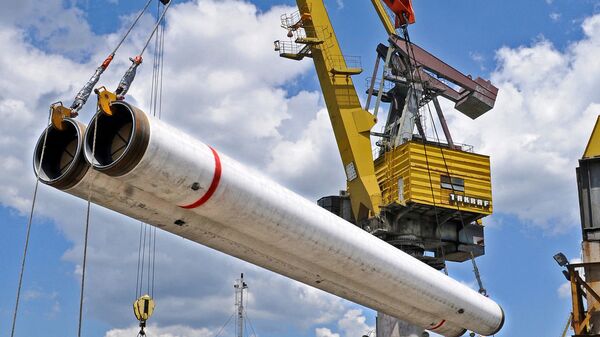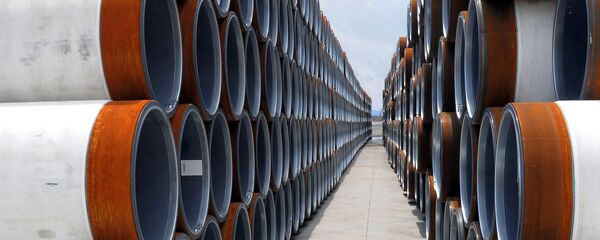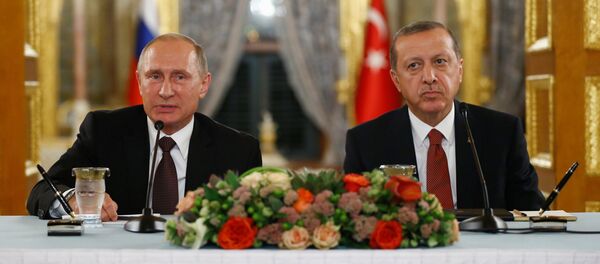The last year has been complicated for Russian-Turkish relations. Ties between Moscow and Ankara soured after Russia launched a military campaign in Syria a year ago. The culmination came when a Turkish jet shot down a Russian bomber over Syria in November.
Over the last six months, Moscow and Ankara have been working to normalize their ties. The Turkish government apologized to the Kremlin for the downed jet. The normalization was intensified by a failed attempted coup in Turkey in July.
Putin’s visit to Ankara showed that Moscow sees Turkish Stream as of the utmost importance for bilateral ties.
For Russia, the implementation of the project means establishing an alternative gas transportation route to Southern Europe bypassing Ukraine.
Russia's Gazprom and Turkey's Botas signed a memorandum of understanding for the construction of the Turkish Stream in December 2014. The new pipeline is planned to have a capacity of 63 billion cubic meters. It will run via the Black Sea from Russia to Turkey and continue to a hub on the Turkish-Greek border.
However, the fact that Moscow and Ankara have finally signed an agreement on Turkish Stream proves that the Kremlin is set to pursue its crucial goals despite all odds.
"One can only guess what arguments the Kremlin is applying to such a complicated partner as Turkey. It is reasonable to suppose that Moscow no longer relies only on Ankara’s good will and common sense," an article in the Russian online publication Vzglyad read.
On Monday, Moscow announced the partial removal of its food imports ban against Turkey. Moreover, a mechanism was agreed for a gas discount for Turkey.
"It seems that Russia wants to include in agreements with Turkey the sufficient amount of additional guarantees. As for Turkish Stream, the priority goal is to construct the pipeline by the end of 2019. And this must be done unconditionally," the article read.
In fact, Turkey almost ruined the project, and Russia has had to invest much patience and additional efforts to revive Turkish Stream, according to the article.
In addition to Turkish Stream, during the talks, Moscow and Ankara discussed a wide range of issues. On Monday, the Russian government lifted its food imports embargo on some Turkish products. The leaders of both countries also pledged to speed up the construction of the Akkuyu nuclear power plant, the first NPP in Turkey. Russia and Turkey also discussed the Syrian crisis, particularly the humanitarian situation in Aleppo.




